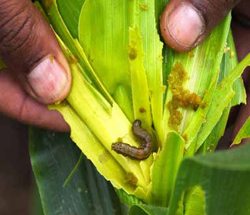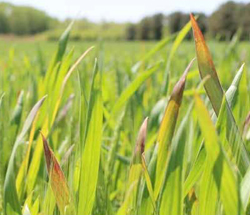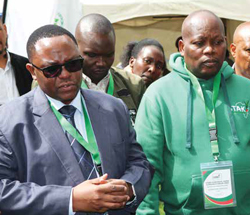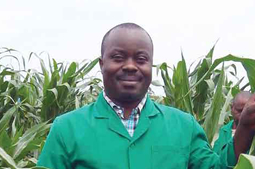Scientists in Kenya Ally to control the fall army worm
 The government has partnered with multinational research organizations to develop an eco-friendly pest management technology to contain the spread of fall army worms in Kenya.
The government has partnered with multinational research organizations to develop an eco-friendly pest management technology to contain the spread of fall army worms in Kenya.
The project which is fronted by the International Maize and Wheat Improvement Centre ( CIMMYT), Kenya Agricultural and Livestock Research Organization (KALRO) and ICIPE is on trial phase at Kiboko field station in Makueni County and is expected to be concluded by February 2023.
The Director Global Maize programme at CIMMYT, Dr. Prassana Boddupalli-, said the Integrated Pest Management (IPM) was to encourage farmers in Sub Saharan Africa and Asia where the outbreak of the fall army worm devastated their yields to adopt less toxic and affordable ways of containing the invasive pests.
 The yellow dwarf diseases of cereals have now been divided into two groups:
The yellow dwarf diseases of cereals have now been divided into two groups: Seed Trade Association of Kenya (STAK)-an umbrella body bringing together all the seed processors in the country, recently held a two-day conference at the Kenya Agricultural and Livestock Research Organization Headquarters (KALRO) in Loresho, Nairobi.
Seed Trade Association of Kenya (STAK)-an umbrella body bringing together all the seed processors in the country, recently held a two-day conference at the Kenya Agricultural and Livestock Research Organization Headquarters (KALRO) in Loresho, Nairobi. In reflecting on the second question, I have come to the conclusion that it is time for the public to put their trust in scientists about the role that genetically improved organisms can play in answering it.
In reflecting on the second question, I have come to the conclusion that it is time for the public to put their trust in scientists about the role that genetically improved organisms can play in answering it.